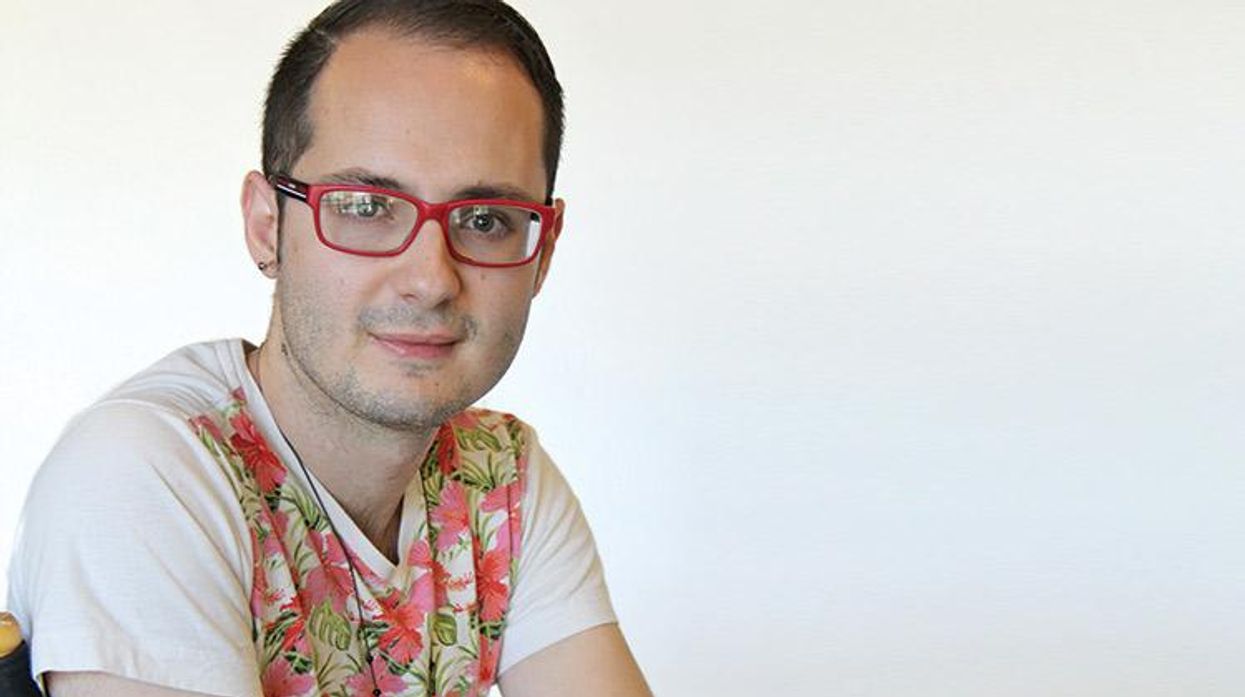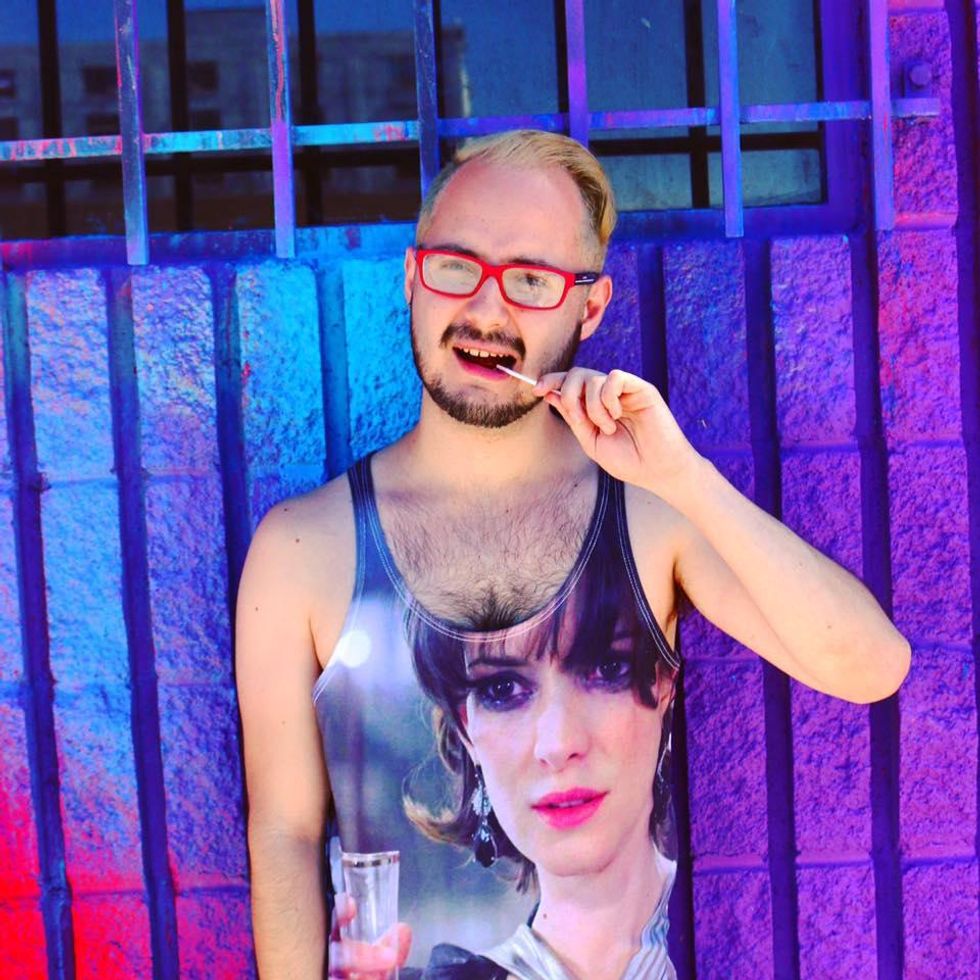"I've never been gay in Spanish," says Jorge Molina on the phone from his hometown of Cuernavaca, a small suburb 40 minutes outside of Mexico City.
His statement sounds like a simple fact. But upon meeting Molina, a rare mix of ambition and heart, the influence of gay and Mexican culture are the first things you will notice about him. His voice is dusted with a Mexican accent, while his wardrobe includes Winona Ryder tank tops and glasses with thick red frames.
But when it comes to the soft-spoken screenwriter known for his bold and, occasionally, bloody scripts, contradiction comes with the territory.
Molina began his writing career in the U.S. by winning a full tuition merit scholarship with the prestigious Writing for Screen and Television program at the University of Southern California, becoming the first Mexican student to receive the honor in over a decade. Through craftily messaging the showrunner through Instagram, he went on to become a writing assistant who worked on the pilot of the TV Land reboot of the film classic Heathers. His work has been featured by AwesomenessTV and GLAAD; now he writes about the craft of screenwriting in a weekly column for The Film Experience.
Leaving Mexico helped Molina leave the closet. He came out while working in U.S.and learned that in a country where "intersectionality" is the hottest buzzword on everyone's tongue, actually being intersectional was harder to talk about. On being Mexican and queer, Molina notes, "It's been a slow process to learn that these are not two identities that contradict each other but actually that inform each other, especially being an immigrant to the U.S."
Staying in the U.S. has been a complex process for Molina, who started applying for a visa upon graduating from USC's School of Cinematic Arts in 2016. Since then, the country where he found himself as a gay man has become Donald Trump's America -- a place where he is a foreigner in both his queer and immigrant identities.
"I've kind of described being gay as having a separate nationality because it kind of follows the same patterns as what being of another nationality is. But is has been kind of a challenge being able to incorporate those two sides." Molina explains, "Those two being the minority that are being the most attacked right now, it does feel even more repressing to be able to merge them and find commonalities in both of them."
Yet Molina's voice remains unrepressed and unsilenced. His writing comes from the nexus of fear and determination. His most recent screenplay is about the secret underground drag culture of Mexico City in the early 20th Century, and the scandals surrounding it, and it is a direct reaction to the Orlando Shooting -- where Latinx LGBT people were the primary victims.
"When Orlando happened last summer, it was kind of an enormous hit on our community, it had me thinking that while I was there, I'm very well-versed, and I know a lot about American queer history and who the people were and important activists and important moments in culture, but I discovered that I had literally virtually no knowledge about queer Mexican history," Molina says.
The tragedy encouraged him to research his own background and create a project he hopes can fill in those blanks for others. In an industry calling for unheard voices, particularly from Latinx and queer creators, Molina offers nuance with a feisty, fiery texture that can only be compared to Ryan Murphy at his most delicious. But his work, which centers around teen plots and perils, speaks to a deeply personal experience with both U.S. and Mexican culture.
"The Mexican culture is a culture of a lot of unacknowledged open secrets, so we know it's there but we never talk about it," says Molina, adding that Mexican culture is in line with the amount of gay acceptance that existed in America in the 1990s. To him, living in Mexico as a gay man "is very different from the U.S., especially right now, where everything is very vocal, and making it as open as you can is kind of a statement."
But Molina makes statements about open secrets. His characters dive into taboos, likely because he comes from a nation that backs away from them when it comes to LGBT issues. "We need to be acknowledged because we are a part of the fabric of our society just like everybody else. But it is a fight to break through that taboo."
But after a year and a half of trying to break through the U.S. immigration process, Molina is struggling to return to the country where much of himself remains. "It's been a process that's been incredibly draining, both emotionally, financially, you know, it feels like a full-time job just to do that," he says.
Working to work, Molina expresses what can't be entered into a visa application: "If the visa or the immigration process was measured by how much you want it, I would have gotten it so much earlier."
















Charlie Kirk DID say stoning gay people was the 'perfect law' — and these other heinous quotes
These are some of his worst comments about LGBTQ+ people made by Charlie Kirk.